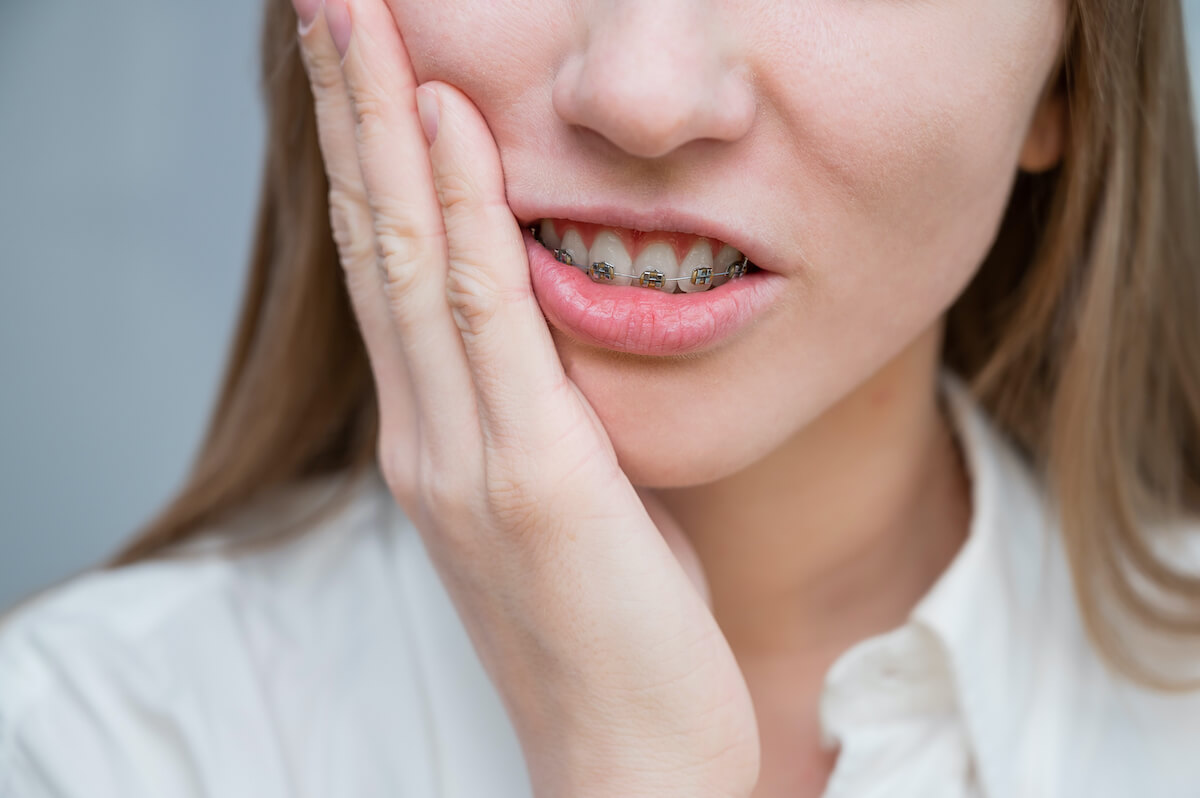Painful Braces
Book an Emergency AppointmentSome four million Americans wear braces, and if you’re one of them you know the pain from braces can be real. Orthodontic care can cause moderate to severe discomfort, especially during the first few days after you get them attached or tightened. The wires and brackets could also irritate the insides of your cheeks, but some pain from braces needs emergency attention from a dentist.

When you first get braces, it’s common for your teeth to hurt. You could also experience jaw pain and irritation to your gums as you get used to wearing them. However, the discomfort should resolve within a few days. If you continue to experience braces hurting your teeth, jaw, or gums after three days, contact your dentist or orthodontist.
Knowing how to relieve pain from braces means identifying the underlying cause. It’s normal to have some discomfort when you first get braces, but it should resolve within a few days. Further, any time you have an adjustment (every four to six weeks) you could have some gum, jaw, and tooth discomfort.
To relieve pain from braces, try an over-the-counter pain reliever. You can also apply an ice pack to the jaw to get pain relief from braces.
If you have inflamed or irritated gums, you can try rinsing your mouth with warm saltwater. It’s also crucial that you brush your teeth after every meal to remove food.
Teeth pain from braces isn’t the only concern for orthodontic patients. Brackets, rubber band hooks, and wires can rub against the soft tissues of your mouth. You can apply a small piece of dental wax over rough, sharp, and broken brackets to reduce irritation. Make sure that you still brush and floss normally, but you can apply wax as often as you need.
If your braces irritate your mouth so much that you develop sores, you may find relief with a salt water rinse. Using warm salt water can soothe the sores and help them heal faster.
Another issue you may have with braces is discomfort in the temporomandibular joint (TMJ). You could even experience pops or clicks as your teeth and jaws shift. It’s perfectly normal as everything shifts into place. However, it’s important to discuss the issue with your orthodontist and dentist so that they can keep an eye on the situation, especially if the pain increases.
If you have sharp tooth pain, bleeding, or inflamed gums around your braces, you should contact an emergency dentist. Over-the-counter medicines, like ibuprofen could help manage the pain, but only a dentist or orthodontist can resolve the underlying issue.
If you have extreme pain related to your braces and cannot find relief with traditional methods, you should contact your orthodontist. The intense pain could indicate a problem that you can’t see. It is a good idea to contact an emergency dentist who can help you and teach you how to deal with the braces pain.
